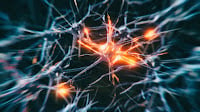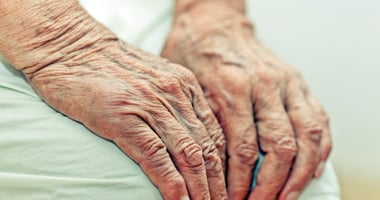Absence of Mood Improvement in Two Weeks May Predict Failure to Respond to TMS

If patients with major depressive disorder (MDD) demonstrate only limited mood improvements after two weeks of repetitive transcranial magnetic stimulation (rTMS), it may be a sign their treatment plans should be adjusted, suggests a study published in Depression & Anxiety.
“Insurers typically approve 36 [rTMS] sessions for patients with MDD. ... It is imperative to maximize benefit from the finite number of treatments [that] most patients can access,” wrote Alex Mirman, M.D., of the UCLA Semel Institute for Neuroscience and Human Behavior and colleagues. “Early, accurate prediction of nonresponse could allow clinicians to change treatment approach, with potentially better outcomes.”
Researchers recruited 329 participants receiving six weeks of rTMS treatment for an episode of nonpsychotic MDD. All participants had a primary MDD diagnosis and previously tried at least three antidepressant trials without achieving adequate improvements. Participants received 30 rTMS treatment sessions over the six-week period. Symptoms were assessed at baseline, after one and two weeks, and at the end of treatment using the 30-item Inventory of Depressive Symptomatology Self Report (IDS-SR). In addition to the IDS-SR score, the researchers analyzed three symptom subscales: sleep, mood, and anxiety. Response to rTMS was defined as a decline in pre- to posttreatment IDS-SR scores of at least 50%.
In total, 94 of the participants responded to rTMS. After one week, improvement in the IDS-SR mood subscale was the only significant predictor of total IDS-SR improvement by the end of the study.
Participants with severe or very severe depression symptoms at the start of the study whose mood improved by less than 20% after one week were highly unlikely to show a response to rTMS by the end of the study. None of the 19 participants with very severe symptoms at baseline who failed to show any improvement in mood after two weeks reached the criteria for response by the end of the study. Lack of improvement in sleep at two weeks was also a significant predictor of nonresponse.
“Our prior work suggests that in subjects showing limited improvement after [two] weeks of treatment, changing rTMS approach improved outcomes,” the authors concluded. “Together, these studies provide a rationale for TMS clinicians to consider changing rTMS approach in people with severe baseline depression showing no mood improvements after one week. This approach could lessen the burden of futile treatment and optimize efficacy in those severely depressed individuals who have most to gain from rTMS.”
For related information, see the Psychiatric News article “New Stanford Protocol for TMS Found to Achieve Fast Remission.”
(Image: iStock/koto_feja)
Time to Vote in APA’s 2022 Election!
The voting period for APA’s 2022 election is now open. You can vote by using the emailed ballot you should have received by now or clicking on “Vote Today” on APA’s website. Take time to learn more about this year’s candidates by reading the Special Edition APA Election Newsletter and viewing the archived town halls in which candidates responded to key questions. The deadline to vote is January 31 at 11:59 p.m. ET. Your vote matters to the future of APA and psychiatry!





